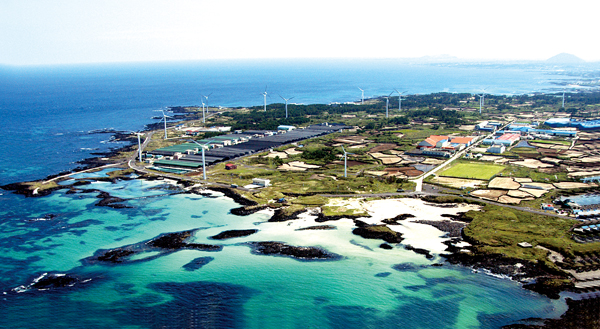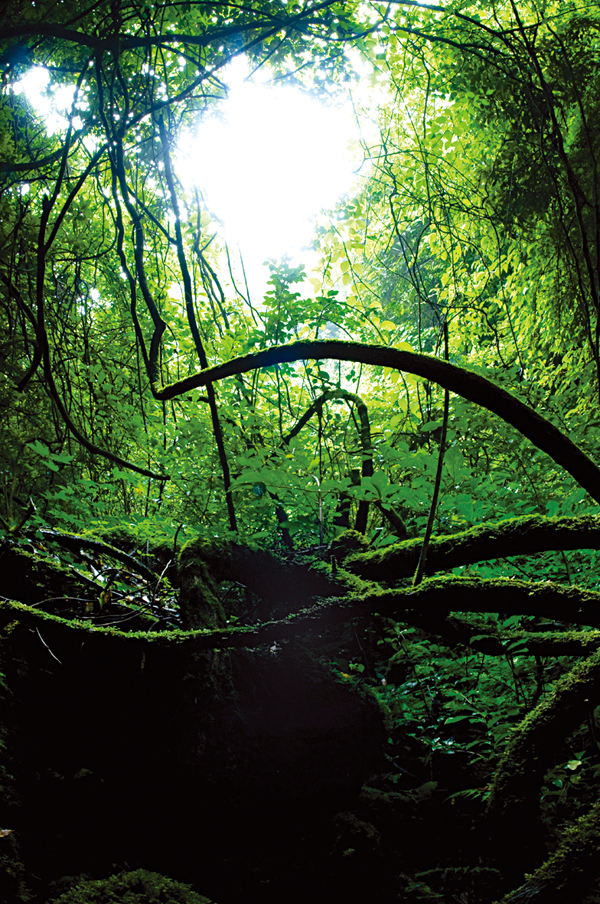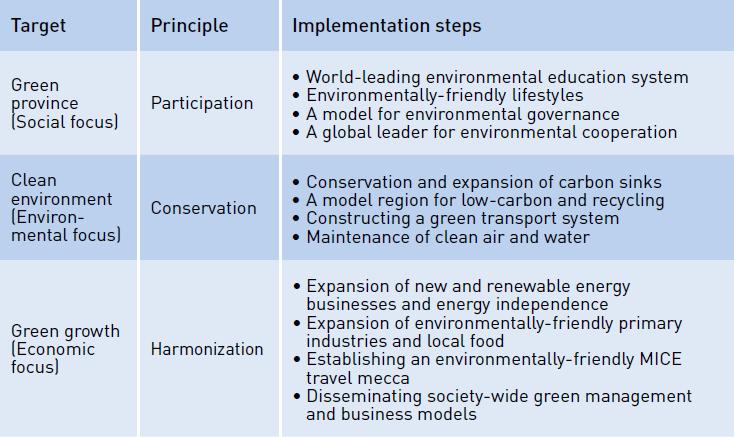| |
 |
|
| ▲ Wind power is a central pillar of Jeju's bid to be carbon free by 2030. Photo courtesy Jeju Special Self-Governing Province |
Jeju Special Self-Governing Province aims to be the the first IUCN World Environmental Capital City by 2020. The idea, first proposed at the IUCN World Conservation Congress (WCC) 2012 in Jeju, will see green growth, sustainability and conservation underpin the local economy and society.
Capital status
Each nation has functional capitals. Primate cities, such as London, might be cultural, financial, political and popula-tion capitals all at the same time. Seoul is Korea's primate, but it also has a newly-developed administrative capital, Sejong, and an historic capital, Gyeongju.
In this functional sense, Jeju is seeking to become a world environmental capital. Not necessarily as the biggest or most well known, but as a beacon of practice to other cities. As the trailblazer, it can set its stall out early, assuming others will follow.
The plans will be considered at the next WCC in 2016 and, if accepted, Jeju will be assessed and potentially crowned as the first IUCN World Environmental Capital City at the WCC 2020. Officials are driven by the Jeju Declaration, a document arising from WCC 2012 which urges countries to tackle “the adverse impacts of climate change” and incorpo-rate the IUCN’s “science-based knowl-edge and policy-relevant advice” to overcome sustainability challenges.
The vision builds on Jeju’s already im- pressive environmental accolades which include Biosphere Reserve (2002), UNESCO World Natural Heritage (2007), Global Geoparks Network (2010) four Ramsar Wetland designations (2006-2011) and New7Wonders of Nature (2011).
| |
 |
|
| ▲ The conservation of Jeju's Gotjawal woodlands is an essential part of the Environmental 2020 bid. Photo courtesy Gotjawal People |
Practical steps to 2020
Apparently more than mere branding, Jeju aims to lead global environmental governance through protection of the environment and fostering sustainable development. Some of the key indicators - if achieved - will make real differences to citizens lives. These include:
- Cutting greenhouse gas emissions by 41 percent based on business-as-usual standards;
- Reducing carbon emissions by 4.9 million tons in household, industrial and agriculture and fisheries sectors;
- Expanding environmental education by 50 percent every year;
- Increasing carbon point registration by 50 percent;
- Planting 20,000 hectare carbon sink woodland and providing cashback to households which reduce electricity consumption over two years;
- Ensuring 80 percent of agricultural products used by the public sector are environmentally friendly;
- Ensuring 30 percent of all tourists to the island are eco-tourists.
2014 is seen as a key year in the bid with many projects central to the overall plans. The 2014 Conservation World Leaders Forum, for example, was explic-itly urged in the IUCN Jeju Declaration and a world environment hub assess-ment and certification system should be in place by year-end.
Existing management of UNESCO sites should be improved with an integrated management system and tightened controls on gotjawal land use. Efforts will also be made to preserve haenyeo cul-ture, restore Hanon Crater, provide graduate programs in environment studies and create a world cyber library and database for the IUCN.
The final stage of the plans, to be achieved by 2020, will see the implemen-tation of Jeju as a global organic island, a carbon-free island, and a zero-waste island.
The endeavor has focus areas driven by sustainability principles, which are then realized through 12 implementation steps.
Critics of the bid
There is undoubtedly some skepticism around the province’s goals, particularly as developers continue to clash with locals across the island. Reflecting this concern, Governor Woo Geun-min pledged to prioritize conservation over development during his term in office, yet many feel the right balance has not been reached.
As the province itself points toward the need for a paradigm shift in environ-mental policy and harmonization of lifestyles and green principles, critics might point towards continuing tourist infrastructure developments which threaten those very principles, such as gotjawal destruction and coastal develop-ment such as at Gangjeong naval and civilian base. Many question whether the province’s mass tourism policy is com-patible with its sustainability rhetoric.
The province’s own literature states that environmental capital status is not only dependent on physical components but must include roadmaps, systems, and provide tangible and sustainable benefits to residents’ lives. In the least, the 2020 bid engages the local government in a discourse of environmental conservation and gives campaigners an armory with which to attack officials failing to uphold their pledges.
The province is now locked into a discourse which prioritizes the principles of sustainability. While officials should be called to account for failure to uphold these principles, it is refreshing that they have been pledged at all. |






















